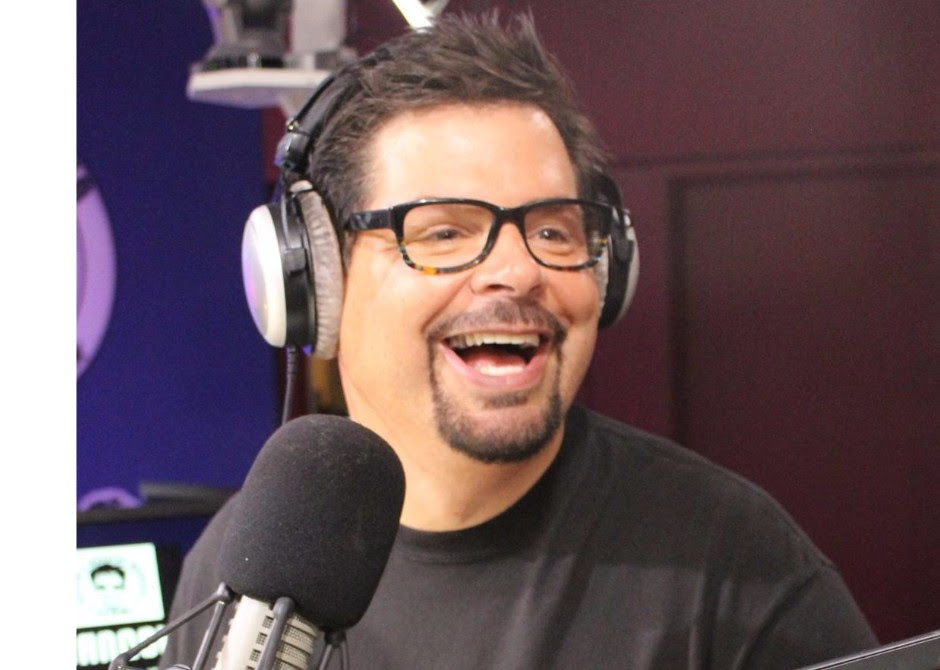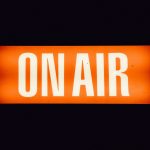Mancow Interview with Randy Lane
Randy: If I asked people in Chicago to tell me about the Mancow Morning Show, what do you think they’d tell me?
Mancow: They’d say he’s outrageous, a rule breaker. I hope they would say he’s a man of the people. I say things that they can’t say. Probably a little crude. Basically, a good guy.
Randy: Share your story about the Bay Bridge event that catapulted you to national prominence at Wilde 107 San Francisco.
Mancow: I got a call from a guy who was trying to get home to San Francisco from LA to be there before his mother died. He missed his mother’s death by minutes.
I was furious because allegedly, Bill Clinton was getting a blow job from Sharon Stone. The media said he was getting a haircut. I always rage against people more powerful than me. I never punch down. The eagle does not hunt the flea. The whole airport had to wait while he got his jollies.
So, we sent a guy in a Bill Clinton mask to get a haircut on the side of the Bay Bridge. Being a Kansas City kid, I didn’t know there were no shoulders on the Bay Bridge. The moronic guy I sent out stopped in the middle of traffic. It caused a huge traffic jam and a lot of delays.
The idea that it helped my career is not true. It hurt me severely. My ratings went up, but I had to personally pay $2 million dollars. I had to pick up trash on the side of the road for 100 hours in an orange monkey suit. And I was a convicted felon, so I had to spend a bunch of money to get it expunged so I could vote again.
Randy: Did you go to Chicago shortly after that stunt in San Francisco?
Mancow: Yes, but they sued me to keep me there. I had to fight a legal battle to go to Chicago. I didn’t want to go to Chicago. I still don’t know why I am in Chicago. The only reason I went to Chicago was my father was dying of cancer and the flight from California to Kansas City was killing me. Chicago is a quick flight.
Randy: You had great success at Q101 which turned into syndication later.
Mancow: I got offered most of the Stern stations except for New York. I was told that if David Lee Roth didn’t work I was promised New York. I also got the “E” TV show. Look, at the height of the show in my final year at Q101 we were billing 26 million just for my show. That’s after they paid me.
Randy: When you went into syndication were you doing more of a political thing, or was your syndication like what you were doing at Q101?
Mancow: I started off doing silly Mancow radio, the Mad House is what we called it. And then as I was taking over the Stern stations that fell apart, I was pushed by this maniac… who shall remain nameless… to do more political, more political, more political!
All that happens when you go political is that immediately half the audience hates you. I got physically sick from doing it. But, I bided my time, and now I’m back making people laugh. Randy, let me just say, the world needs more laughter.
Randy: We do need more laughter with all the negative news going on today. A lot of air talent aspire to go into syndication because they feel it is the ultimate success. Do you agree with that?
Mancow: I certainly enjoy the additional income, but the fact is there’s nothing like a local show. Be careful what you wish for. Des Moines doesn’t care about the best Chicago pizza. Detroit didn’t care about our red-light camera issue. Kansas City didn’t care about our outrageously high taxes.
Randy: Can you run through your current show cast on The Loop?
Mancow: I have Al Roker, Junior, the rotund, one-footed diabetic sportscaster. I have DJ Luv Cheese, who does our producing. Abe the Chameleon does voices and phone scams. And then I have Kathy the Greek, who does traffic and weather and is paid to laugh at my stupid ass jokes.
Randy: What would you say the show is most known for right now from a content standpoint?
Mancow: We are all over the place. I go wherever emotion takes me. That would be my advice to young radio people. Don’t talk about stuff because you think you should talk about it. If you read a story and you have an emotional reaction to it, then the listener will have a reaction to it.
Randy: You said that you started talking about your family, and I know that you bring some personal stories to the show. Stories are a great way to connect with people.
Mancow: Look, Jesus spoke through parables. The best way to communicate is always through storytelling. Here’s what people forget about storytelling: beginning, middle, end. Before you start, know how you’re going to end. If it doesn’t have an ending, it’s not a story.
Randy: And there must be something at stake to make it an entertaining story.
Mancow: Listen, there’s no great love story, no horror movie, no drama, no joke or comedy, no song without a challenge. There’s got to be conflict. Without conflict, it’s nothing.
Randy: How much music do you play per hour on the show?
Mancow: As you know, I probably have the most produced radio show in history. I’ve never heard a show with more sound elements than I have. It’s kind of an unfair question. We do four songs an hour. There is music throughout the show.
Randy: Do you have fixed time features and benchmarks, or do you do float them spontaneously?
Mancow: Everything is spontaneous. I’m not saying I do it right. What’s the mood of the city? What are you feeling from the calls? We are painting a verbal picture every day. I have never been a big believer in benchmarks, although I’ve been told that’s wrong.
Randy: I changed my philosophy on benchmarks when we found out that people are only listening for an average of 10 to 12 minutes at a time. Most people listen at the same time everyday based on their schedule. So, if you do the same feature at the same time every day, only 8-9% of your audience is going to hear that feature. Also, that feature is the only thing listeners will hear at that time.

Floating features throughout the show will expose all of your content to your entire audience, eventually. Your show will be more surprising and unpredictable.
How do you see radio fitting into the media mix in the future? The dashboard is expanding beyond radio to include Spotify, Pandora and additional online options.
Mancow: What makes radio special is that it’s immediate. You are the listener’s sidekick; you’re their copilot in the car. To me, it is still the most powerful form of media there is.
Randy: Well, if you are creating great content, making people laugh, and you have a relationship with an audience, I don’t know that it matters what the vehicle is – whether it’s coming from the Internet or from a radio tower.
Randy: What role do stunts play in your show on The Loop today?
Mancow: Today we were hunting rats to feed to homeless people on lower Wacker. We had BB guns and interns looking for rats. We were giving out little Hibachi grills. We have an abundance of rats. It’s nutritious meat. It’s gamey, and we have a homeless problem. I figured we could kill two birds with one stone.
Randy: In all the years I’ve known you, I’ve never asked you how you got the name, Mancow.
Mancow: It came from a superhero I created. He was half man, half cow. He was a man, but he had udders between his legs.



